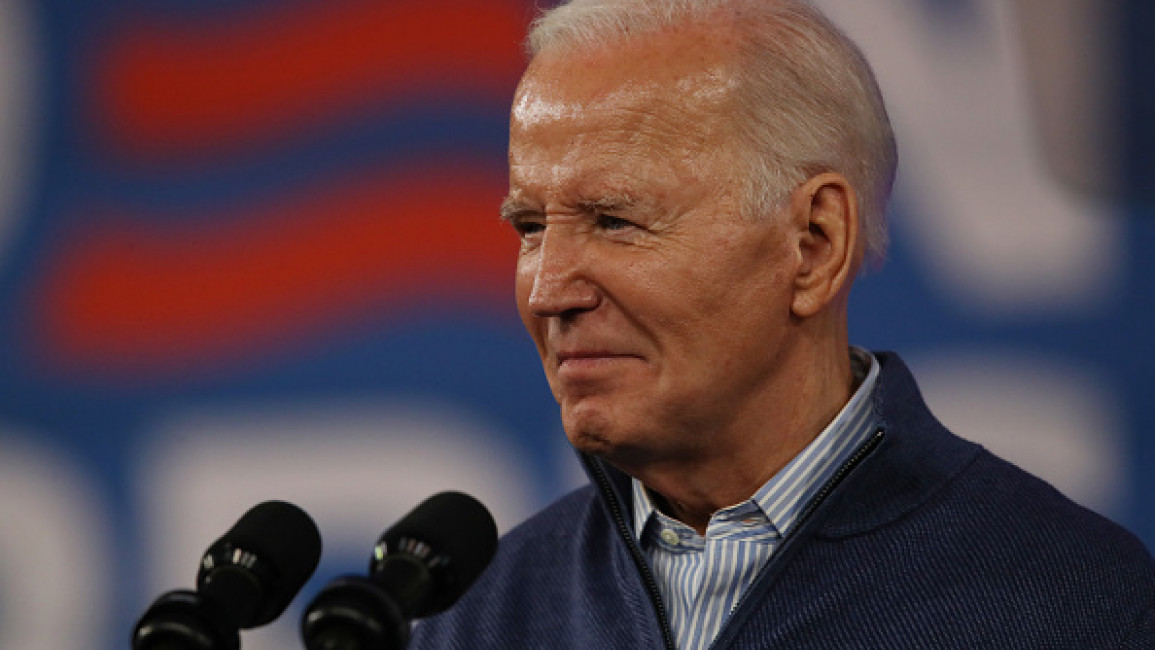White House changes plans after US Muslim groups refuse iftar with Biden
The Biden administration was forced to change its plans to host an iftar dinner on Tuesday after a number of Muslim community leaders rejected an invitation to attend, due to US support for Israel's war on Gaza.
The White House was initially going to host the event with Muslim community leaders but decided instead to hold a scaled-down meeting with Muslim government officials.
Two sources familiar with the matter told Al Jazeera that the event was cancelled after Muslim community members warned leaders against attending.
Edward Ahmed Mitchell, the deputy director of the Council on American-Islamic Relations (CAIR), said that many leaders refused to attend the event over the White House's complicity in Israel's war on Gaza.
"The American Muslim community said very early on that it would be completely unacceptable for us to break bread with the very same White House that is enabling the Israeli government to starve and slaughter the Palestinian people in Gaza," Mitchell told Al Jazeera.
One of the attendees, Dr Thaer Ahmad, an emergency room physician who had spent three weeks volunteering at Al-Nasser Hospital in Gaza earlier this year, told CNN that he had walked out of Tuesday's meeting before it ended.
"Out of respect for my community, out of respect for all of the people who have suffered and who have been killed in the process, I needed to walk out of the meeting," Ahmad said.
US President Joe Biden’s glitzy fundraising evening in New York on Thursday was disrupted by pro-Palestine protesters who heckled former president Barack Obama and staged a demonstration outside the event.https://t.co/ATT3xONP1V
— The New Arab (@The_NewArab) March 29, 2024
Ahmad, who said he was the only Palestinian-American in the meeting, said "there wasn't a lot of response" from Biden.
"He said he understood, and I walked away," Ahmad told CNN.
The Biden administration has faced sharp criticisms from Muslims, Arabs and anti-war activists over the US policy on Israel's war.
The US president has been facing pressure from foreign partners, human rights groups, and some of his fellow democrats to impose conditions on arms transfers to rein in Israel's offensive in Gaza, where over 32,000 Palestinians have been killed since 7 October.
It was also revealed that a majority of Americans are now opposing Israel's war for the first time since the assault on the enclave began in October.
(Reuters)



